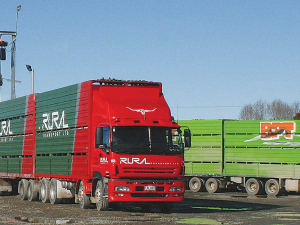The labour shortage in the freight and logistics sector is set to grow to 18,000 workers by 2028 without immediate intervention, according to new research.
Industry experts say unless this gap is addressed, the growing skills shortage will constrain the future growth of all sectors of New Zealand’s economy.
The research, commissioned by Hanga-Aro-Rau, the Manufacturing, Engineering and Logistics Workforce Development Council, found the fragmented logistics sector struggles to attract and retain workers, losing thousands of employees to other industries and more lucrative overseas roles in the past two years.
The report also revealed discrimination and pay inequity within the sector, creating barriers to career progression for women and Pacific peoples.
The report found that while targeted training programmes have boosted the number of Maori in higher skill level roles to 27%, the equivalent proportion for Pacific workers only grew by 3% in the past decade.
The report’s authors also found the logistics workforce gap is widening faster than the manufacturing and engineering sector and that an exodus of over 4,600 workers (3.5% of the workforce) leaving the industry in the past two years was led by Generation Z (aged 15-24) and, 23% of workers opted for opportunities offshore where wages are significantly higher.
The industry is now looking to attract gamers who have the requisite skills needed to operate the new automation, robotic and drone technology expected to be adopted in the future.
Interim chief executive of Ia Ara Aotearoa Transporting New Zealand Dom Kalasih says growing capacity constraints in the logistics sector will ultimately lead to delays in meeting customer expectations, shortages, and price increases for consumer goods.
He says the rural sector and food manufacturers are likely to be among the first to see the impact of the shortage.
“When you have a scenario where demand for services significantly outstrips available supply, such as that forecast for the logistics sector, then market forces will look to prioritise the allocation of resources,” Kalasih says.
“What we can expect to see is that if you have perishable goods such as live cattle or horticultural produce that need to get to market within a certain timeframe, then we are likely to see changes in the freight sector away from lower priority shipments to meet that demand.”
He says there will be costs associated with those changes, and it will be more expensive every time that food product is moved to the manufacturer, the wholesaler, and the retailer.
“Ultimately, this will have a flow-on effect to the cost of goods paid by the consumer, and it will also mean shipping delays for non-perishable products,” Kalasih says.
Samantha McNaughton, deputy chief executive of Hanga-Aro-Rau, says a functional freight and logistics industry underpins the growth of every sector of the economy.
She says the report identifies numerous systemic issues facing logistics firms and calls for the immediate introduction of an industry-wide strategic approach to reduce barriers to training.
“The logistics sector covers the movement of goods throughout our national and international supply chains – including order processing, inventory management and distribution across our air, sea and land ports,” McNaughton says.
“This industry acts as a critical enabler and lynchpin in the economy, intersecting and supporting the growth of every other sector in some way.
“The new report shows the pandemic has accelerated the adoption of automation within logistics firms as they attempt to mitigate the international impact of skilled labour shortages,” she says.
McNaughton suggests that rather than reducing the size of the workforce, automation is changing the nature of the roles in the industry and is creating opportunities to grow through a more gender and culturally diverse workforce as well as facilitating the entry of more disabled worked into the sector.
McNaughton says the research will be presented to a summit on June 1 where employers, industry stakeholders, government, and vocational education participants will collaborate on developing solutions to the skills shortages and workforce development challenges faced by the sector.


















